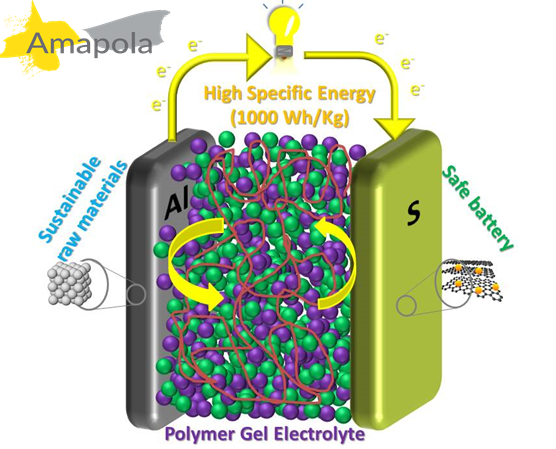Amapola project eyes marketable polymer-based aluminium-sulphur battery for vehicles and aircrafts
Amapola project, which is funded by the EU with two million euros and is scheduled to run until 30th September 2022 eyeing on a marketable polymer-based Al-S battery has declared it will be emerging with an aluminium-sulphur battery for vehicles and aircraft. The intent is to develop an Al-S cell that carries out very high energy density values (660 Wh/l or 400 Wh/kg) and uses the benefits of innovative polymer gel electrolytes.

The project is governed by a consortium coordinated by the Hempol Group and incorporates the British universities of Leicester and Southampton, Graz University of Technology, the Technical University of Denmark and the battery company Varta Microinnovation.
_0_0.jpg)
The Amapola project is constructed on the prototype project Salbage which concluded at the end of 2020. However, in the fresh project, the researchers desire to further examine the materials proposed in the Salbage project and develop advanced cathode formulations. In addition to pure research, the development is also to be mounted and pre-industrialisation achieved.
Aluminium and sulphur is the most preferred, due to their abundant availability and is also supposed to evade potential raw material shortages in lithium-ion batteries. Furthermore, Al-S cells can store very high energy. It needs to be noted that the mentioned values of 660 Wh/l or 400 Wh/kg have been calculated, but yet to be reached.
The researchers stated: “Based on the promising research results of Salbage, innovations are now being developed to show that Al-S-based batteries can have a place as a new future technology for batteries in certain market niches. It remains open, however, how large these niches should be. A solution for the mass market does not seem to be expected within the framework of this research project.”
This news is also available on our App 'AlCircle News' Android | iOS





















